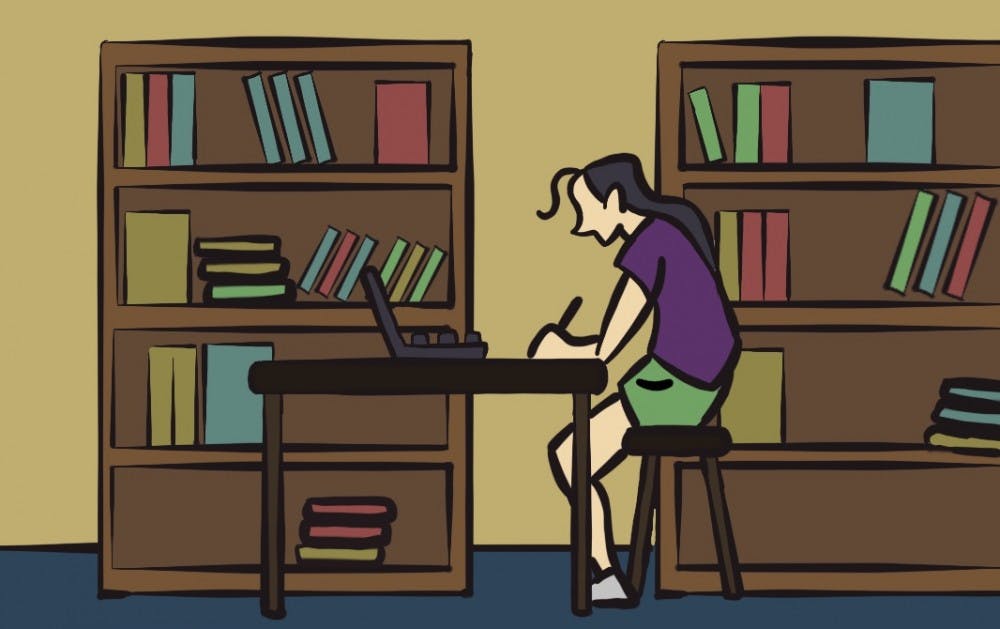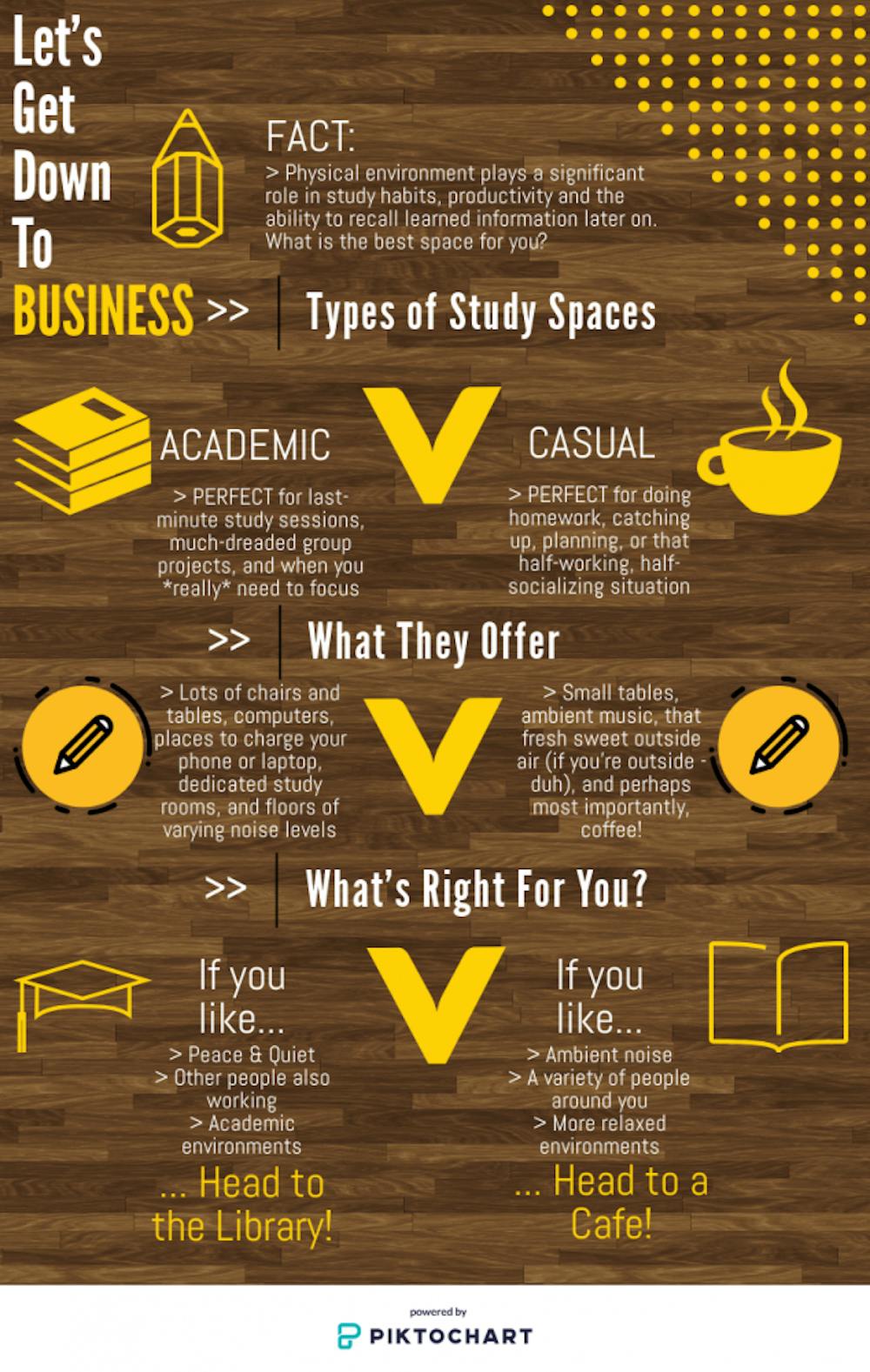For an ASU student, a day of homework, studying or cramming can mean more than just endless hours spent sitting at a dorm room desk surrounded by snack wrappers and piles of laundry.
Students could benefit from exploring the different kinds of study spaces available to them on campus, to help focus during study sessions and recall material more easily later on. Taking a break from the dorm environment and instead studying outside or in a library can facilitate studying and separate study time from other aspects of student life.
Anne Kupfer, the director of ASU’s child study lab, said physical environment plays an important role in studying.
“So many times, you really rely on the environmental context to help you understand what you’re feeling right now, and so of course it’s going to follow suit that in studying and recalling that information, your external environment is going to play a large role in that,” Kupfer said.
At ASU’s Tempe campus, there are a multitude of study spaces available to students, including the Hayden Library, the Noble Science Library, Engineering Center (G Wing) and residence halls across campus.
Read more: Five hidden study spots on ASU's Tempe campus
Academic spaces like these, depending on where you go, can lend themselves to better studying, as the environment you study in should ideally be as similar as possible to the exam room.
“Sitting in a seat at a table studying, you’re going to recall less because your body is stationary and it’s in this one environment,” Kupfer said. “If you’re studying in your dorm room, your exams are not in your dorm room, and so that’s why you have such a difficult time afterwards remembering those things when you’re sitting in a classroom in a wholly different situation.”
There are also non-academic spaces as well, such as Starbucks, Charlie’s Cafe or simply open seating outdoors.
Public spaces might seem like they have the propensity to offer more distractions than a dorm room might, but according to a study published in the Journal of Consumer Research, ambient noise of about 70 decibels was found to boost performance more than quiet levels of noise.
While students might have the tendency to stay home and do the majority of their homework and studying in the comfort of their own dorm room, it may not be the environment most conducive to getting work done.
“Part of the problem is that so many other things happen in that environment that are important to you, like social things, or this is where you sleep. This environment is important for all of these other aspects of your life, that they almost compete,” Kupfer said. “Another way that a more novel environment might work better for you, it’s like, ‘Well, I don’t do many things in this environment other than study,’ and so it becomes a place where that’s a focus for your body.”
For students who spend a significant amount of time in their dorms, taking a break from their usual environment and going someplace else to study can isolate study time from the rest of student life, placing emphasis on academics during those time periods and making study sessions that much more meaningful.
Regardless of whether they go to a library or a cafe, students should venture out of their dorm rooms and look for new places to have dedicated study time.
“I’m glad to hear that engineering has spaces,” Kupfer said. “I know certainly the law school does. The libraries have places for you to go ahead and study in, and that’s more generic, but it’s still better than sitting in your dorm.”
Reach the columnist at kalbal@asu.edu or follow @KarishmaAlbal on Twitter.
Editor’s note: The opinions presented in this column are the author’s and do not imply any endorsement from The State Press or its editors.
Want to join the conversation? Send an email to opiniondesk.statepress@gmail.com. Keep letters under 500 words and be sure to include your university affiliation. Anonymity will not be granted.
Like The State Press on Facebook and follow @statepress on Twitter.





